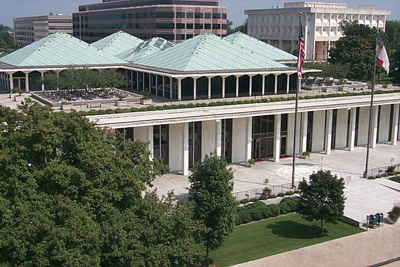Nearly a dozen North Carolina school boards and at least one individual are suing the state over its recently adopted childrens vision law. In the lawsuit, the school boards, along with the North Carolina School Boards Association, say that the law is unconstitutional because requiring an eye exam effectively denies children a free education.
 |
| North Carolina is only the second state to mandate a children"s vision exam. |
The new law makes North Carolina only the second state to mandate eye exams for schoolchildren. Kentucky was the first.
The North Carolina vision law requires that children entering kindergarten show proof of an eye exam before beginning the 2006-2007 school year. Children cannot attend school without it, and the vision law does not provide a grace period once the school year starts. Nor can an eye doctor from out of state perform the exam; children must be examined by a North Carolina optometrist or ophthalmologist.
The lawsuit argues that it will be virtually impossible for all children to obtain an eye exam between now and the beginning of the next school year. Additionally, there is no state program that covers the cost of the eye exam, the lawsuit argues, yet the state does cover an already-existing kindergarten vision screening program.
The effect of the comprehensive eye exam law is to put an unconstitutional price on admission to public school and, consequently, to put local school officials in the untenable position of either denying school admission to children constitutionally entitled to attend or violating the requirements of the comprehensive eye exam law, the school boards state in the lawsuit.
The lawsuit comes amid accusations of political skullduggery. Optometrist Jim Black, who is the state speaker of the house, pushed for passage of the vision bill. Currently, Dr. Black is under investigation by a federal grand jury as well as the state board of elections over campaign contributions.
The grand jury investigation is looking into both contributions tied to a newly passed lottery law as well as contributions made by optometrists though the O.D. political action committee.
A number of optometrists gave checks to the PAC, but the checks only had the amount and the signature filled in. Someone else filled in the payee name and date months later when the checks were given to legislative candidates, the grand jury revealed.
An election board investigator said that this contribution method violates state law. Dr. Black denied that the practice is illegal. The grand jury will decide who is right.
All the political hubbub has put the childrens vision law under a black cloud, says optometrist Hal Herring, president of the North Carolina State Optometric Society.
We are trying to motivate all of our optometrists to see their legislators prior to the start of the next legislative session and explain the merits of the Childrens Vision Law, Dr. Herring says. Our message to the legislators is to evaluate the law on its meritschange it where you feel it needs to be changedbut dont throw it out because of politics.
Three proposed changes to the law:
Increase the time period allowed to obtain the eye exam from six months to one year prior to starting school.
Add a grace period to allow children to obtain the exam after school starts.
Allow any licensed eye doctor (whether in state or not) to perform the exam.
The Governors Commission on Early Childhood Vision Care is empowered to evaluate the effectiveness of the vision program in identifying vision problems and the cost-to-benefit ratio in doing so, Dr. Herring says. North Carolina optometrists hope to convince the legislature to leave the law in effect for at least two years to allow the commission to gather the data and make a report of their findings.
We are also going to visit locally with school board members, principals, and superintendents to let them know that optometrists will do everything we can to ensure the vision exam requirement is not a problem for them when school starts, Dr. Herring says. We will be available to do the exams, and get them done as a contribution if necessary, to allow all children to meet the requirement.
Optometrists who want to aid the NCSOS can contribute letters of testimony on pertinent cases in which a school vision screening missed or delayed finding a vision problem, Dr. Herring says.

